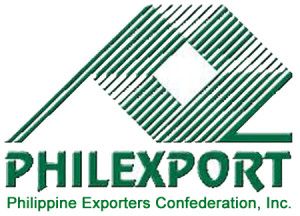 Philippine Chamber of Commerce and Industry mainstay Donald Dee says he and other leaders of the country’s biggest business organization have been making noise about the problem of high domestic freight for no less than 30 years.
Philippine Chamber of Commerce and Industry mainstay Donald Dee says he and other leaders of the country’s biggest business organization have been making noise about the problem of high domestic freight for no less than 30 years.
Bobby Amores, head of PHILFOODEX, and board member of the Export Development Council and PHILEXPORT, wants the Export Development Council (EDC) to revive the issue, which he says keeps food, furniture and handicraft exports uncompetitive to similar goods in the ASEAN region.
All that time, most Asian countries have made it to the ranks of the newly industrializing economies with Korea and Japan already highly industrialized, and China growing to be the second biggest economy in the world. Back home, the Philippines has remained poor, with millions of its men and women of working age without jobs.
One research study showed it only costs US$5 to ship a ton of corn from Manila to Hong Kong, 633 nautical miles away. But when shipped from Cagayan de Oro to Manila, closer at 504 miles, the same corn costs up to more than twice as much at $9.1 to $13.9 per ton!
Studies and studies have been made, one by the World Bank, to find the problem’s root causes. Two have been pinpointed, the first being the Cabotage Law, which prohibits foreign vessels from moving cargoes and people between the islands. The law was enacted by Congress long before globalization was the name of the game. Only another law could reverse it. A bill is now pending before the legislature, which is to say that no immediate relief can be expected.
The other problem is the high cost of port handling services like arrastre, wharfage and other services. Port charges are regulated by the Philippine Ports Authority (PPA). The fees have gone through the roof over the years. The EDC transportation committee points to PPA as the culprit since it gets 20% of fees from international lines and 10% from domestic carriers, collected for it by service providers themselves.
Although the PPA goes through the motion of holding public hearings each time port service providers seek rate increases, the agency always ends up approving the rate hikes despite vehement objection by exporters, importers and local manufacturers serving the domestic market. PPA knows who butters its bread — the port handling outfits. As rates increase, its share of the fees also increases.
At last week’s EDC meeting, it was pointed out that while the PPA charter was enacted into law by Presidential Decree 857 issued by the late dictator Ferdinand Marcos and can only therefore be changed by Congress, the agency’s power to collect a percentage of the port services fees was only given through a letter of instruction or more specifically, LOI 1005-A.
An LOI was the martial law equivalent of a Presidential Executive Order which an elected President can issue today. As such, the Marcos LOI can be changed or reversed by an executive order issued by President P’noy. There is some hope of partial relief from that end.
Ambassador Dee informed the group that path was taken in the past but nothing happened. There’s no harm in trying again. Maybe this time around, Transportation Secretary Mar Roxas, known to have close links with the business community and familiar with issues the sector faces since he was trade chief, may bring the issue straight to his close friend, the President.
And maybe this time around, some changes toward faster and more frequent movement of goods between the islands actually happen so that farmers and other rural producers will have better access to their markets. Economic growth coming from that end will then be truly inclusive.





